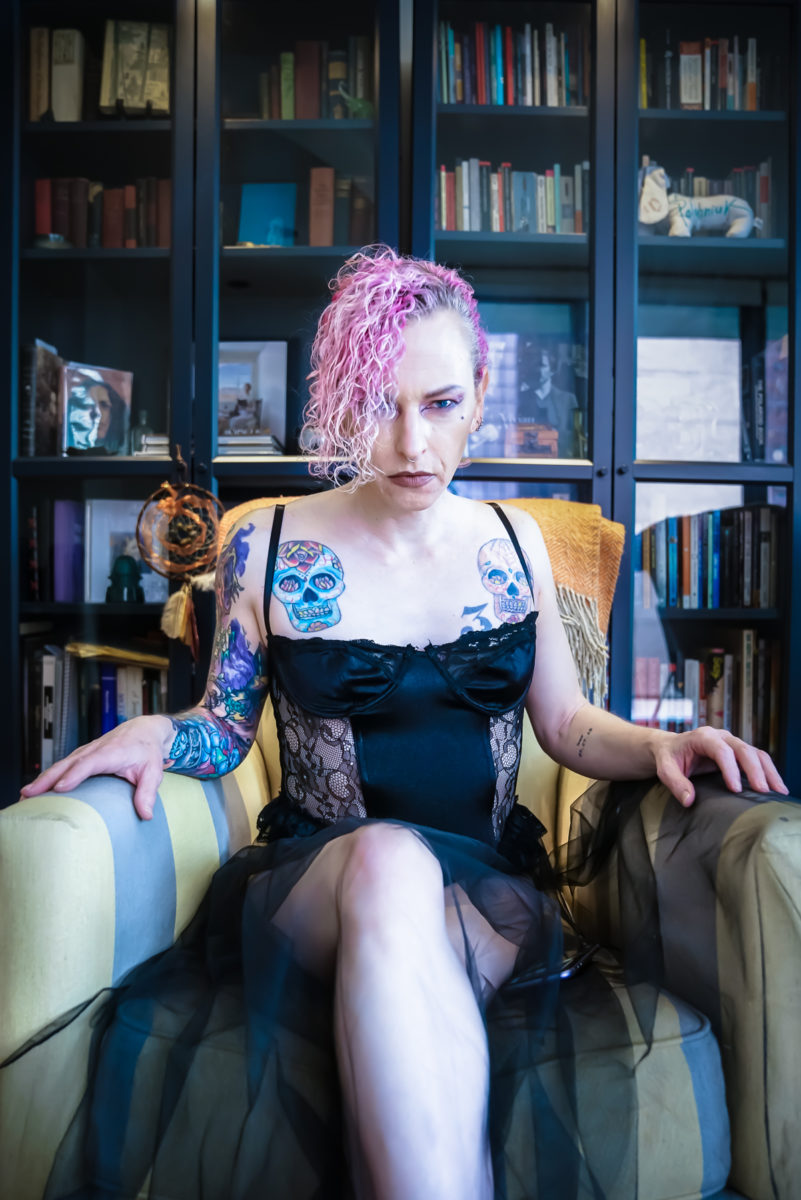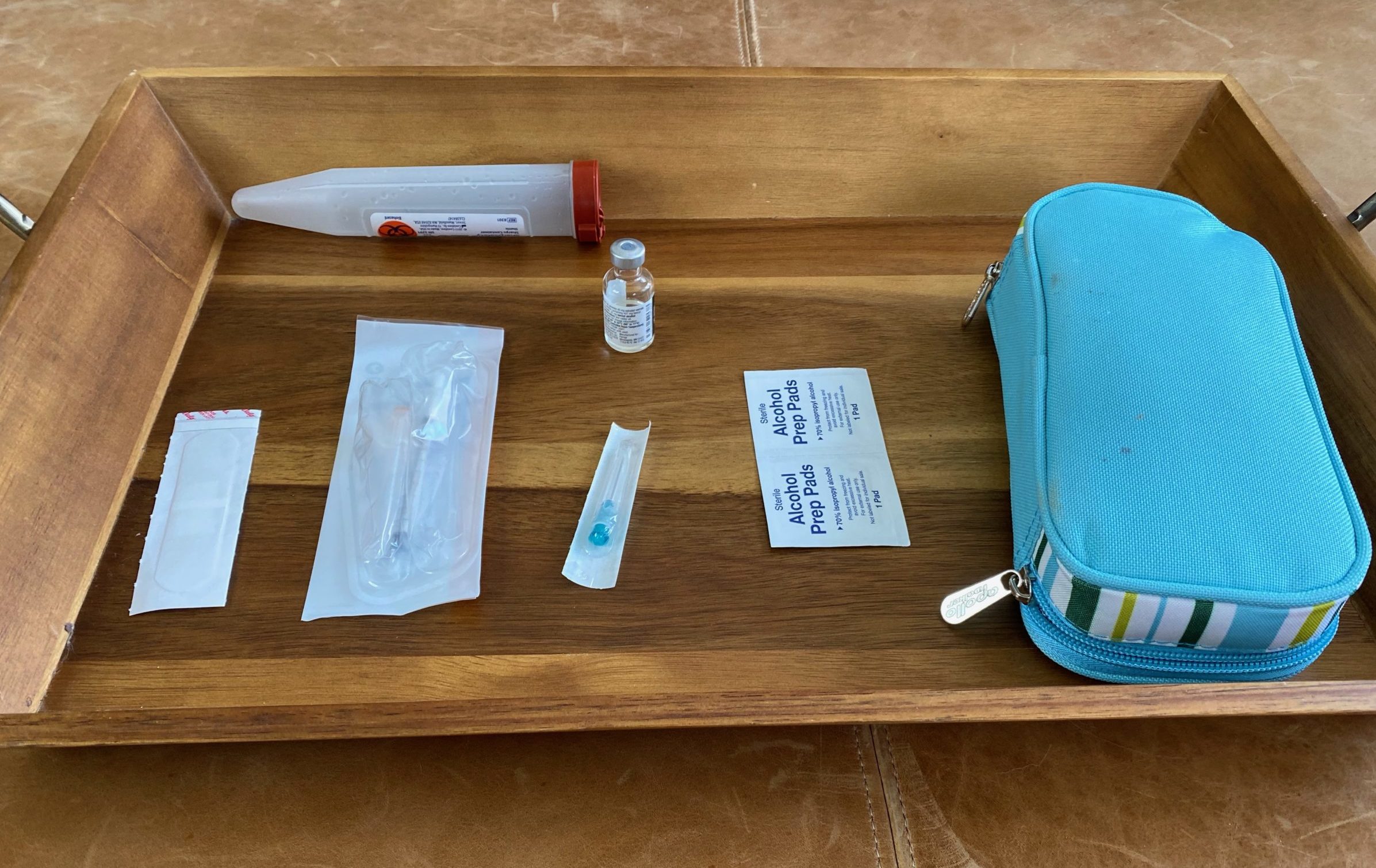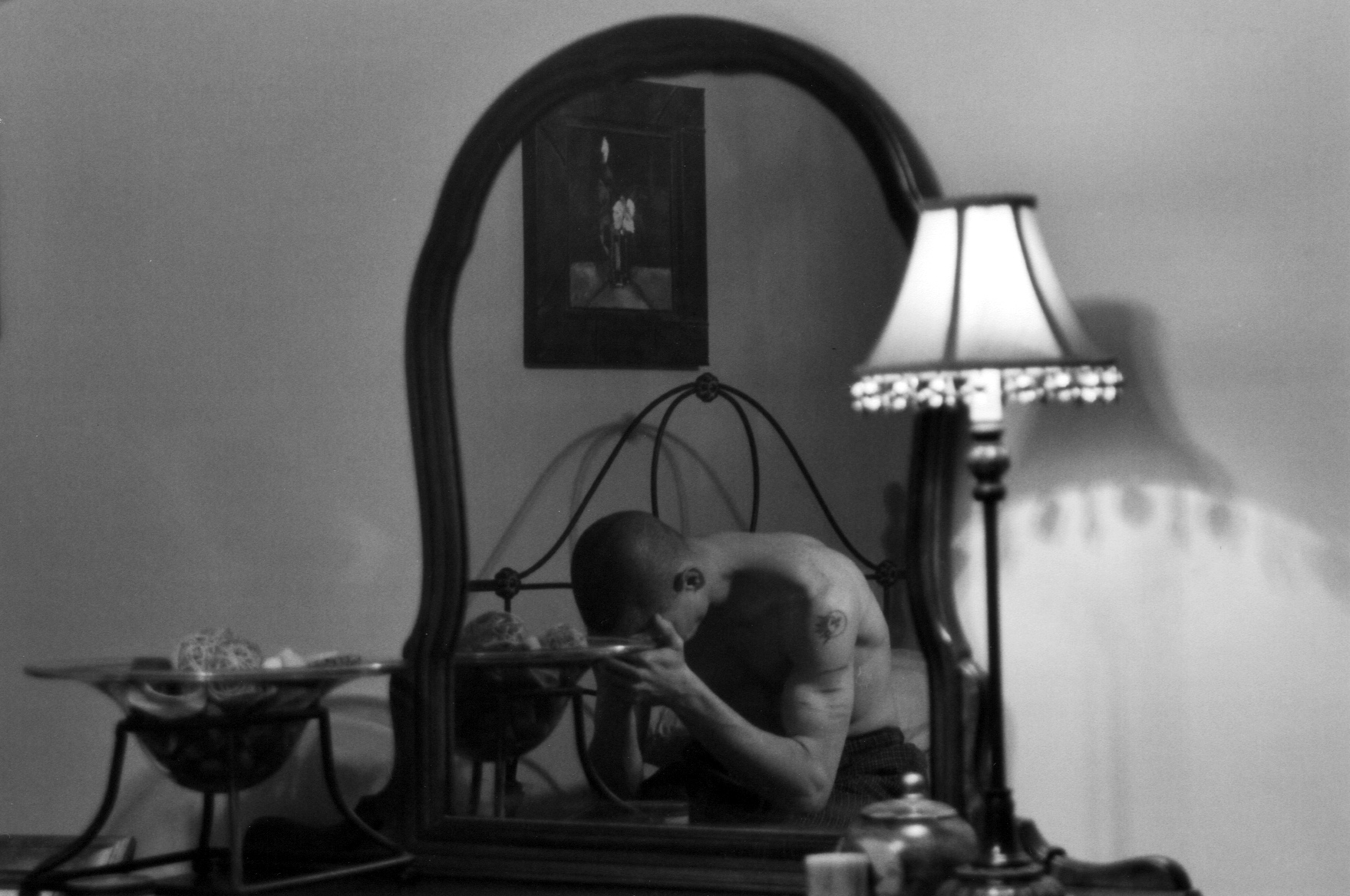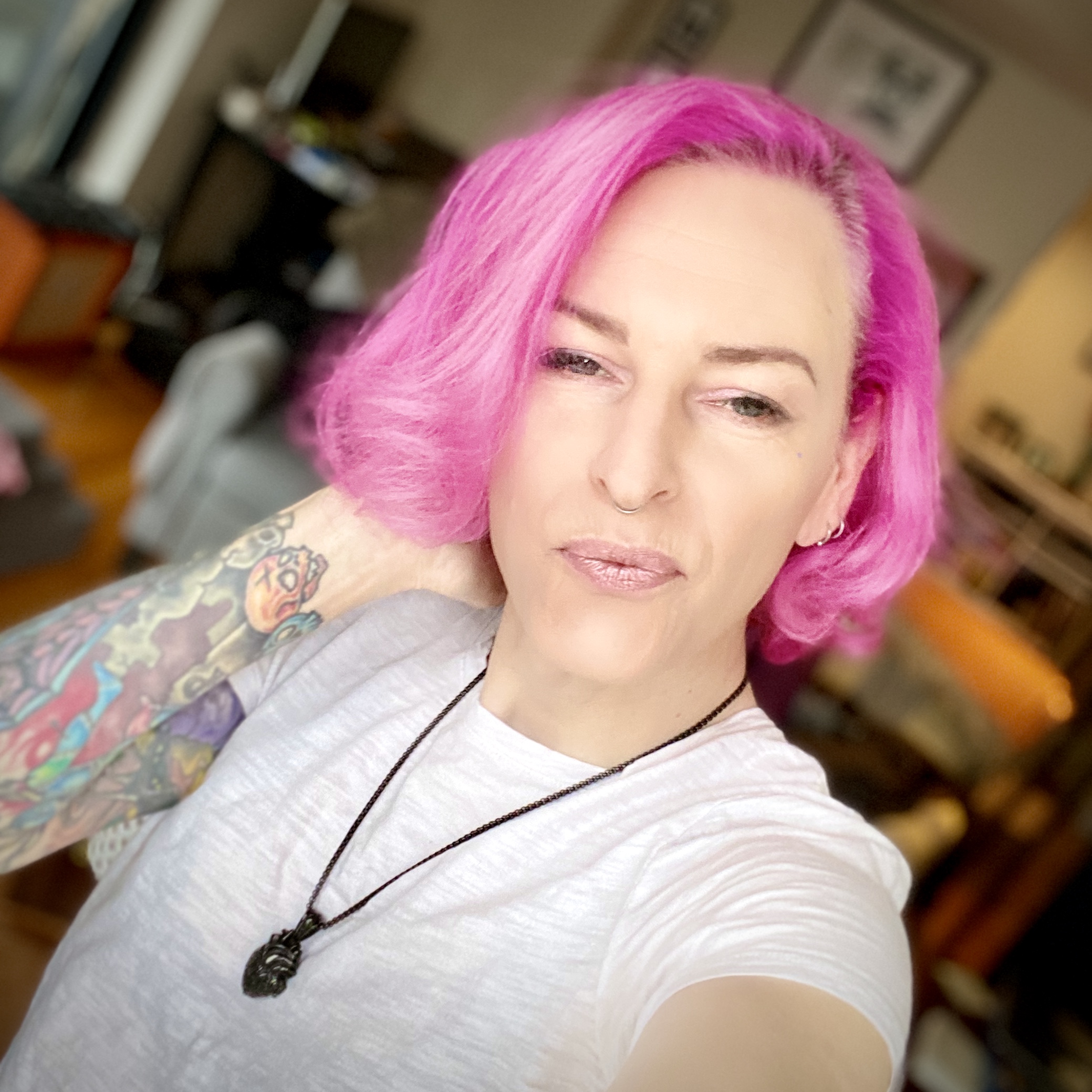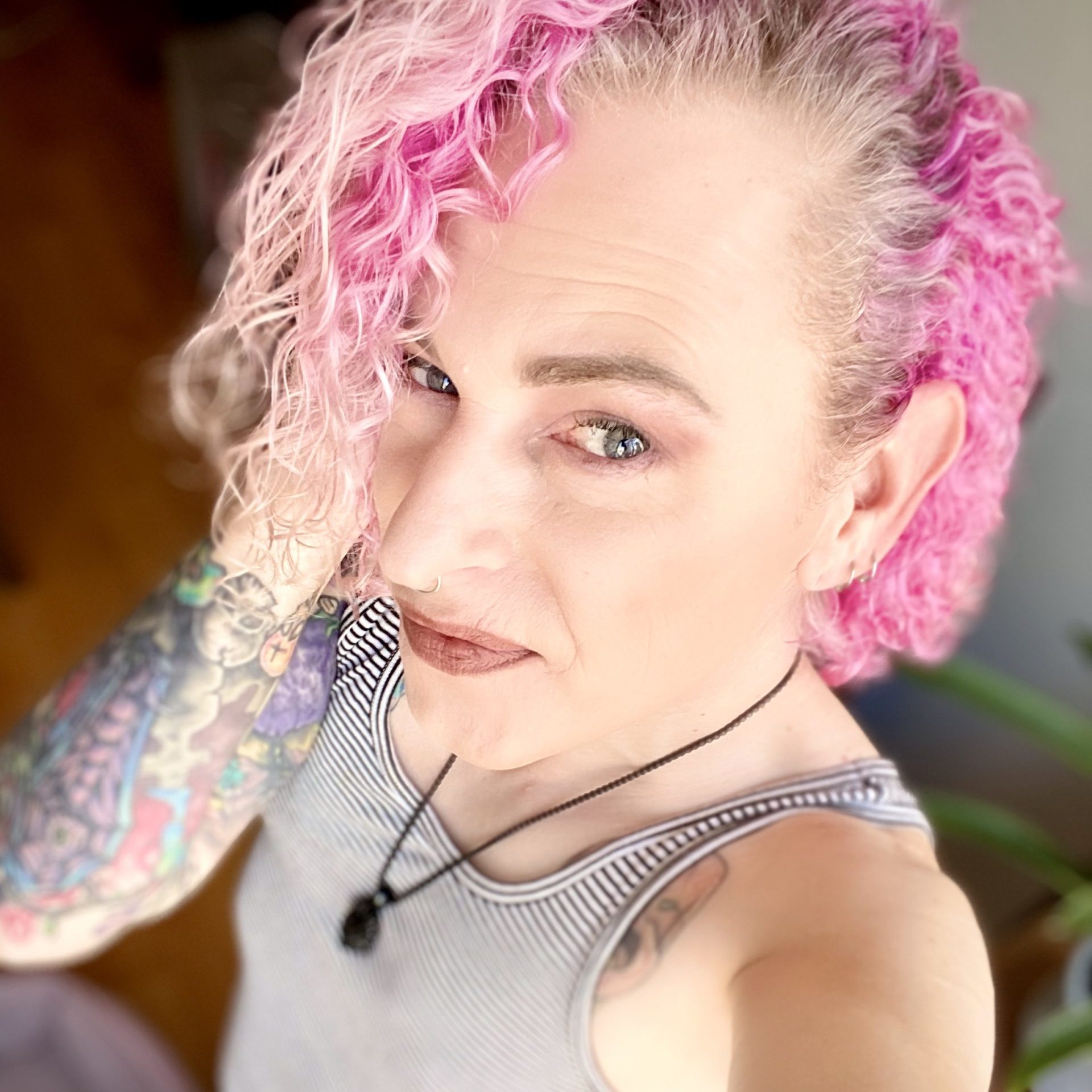There’s a common narrative within the media and literature that all trans folx knew they were trans from a very early age; that we all went to sleep each night praying to a god that we would magically wake up in the “right” body. This narrative is so pervasive that I think many trans people feel guilt, shame, or fear if they didn’t feel that way. I know I did. It created questions in mind as to whether or not I was actually trans! I suspect that some folx simply say that they did know, even when perhaps they didn’t; just so they don’t feel othered within the trans community or by cis-people who know only one book-club narrative.
The truth? Not everyone knows at 6 years old or 20 years old or, even, 50 years old. Not everyone prayed to be transformed over night. Certainly there are those who experienced early recognition – common narratives exist for a reason – and, in many ways, I suppose I’m envious of their clarity at such an early age. However, I didn’t have that language or awareness early in my life. In fact, I’m still gaining clarity. After I had already begun this post, I read an incredible article that gave much clarity to my experience – Gender Desire vs Gender Identity by Amanda Roman. As she so eloquently states, “I, like so many other trans people, grew up experiencing gender not as an identity so much as a desire.”
Growing up, I idolized womanhood. I viewed it as far superior to being a man. Women had all the good stuff, the things I coveted so deeply: conversation, sisterhood, emotiveness, whimsy, sexuality, expression, fashion, creation, power, presence, culture, maturity, empathy, intelligence, mother spirit, depth. I longed for that experience so deeply; to be on the inner circle of what I perceived to be the “better” experience in life. I stood as a witness, an outsider looking in on a world I desperately longed to live in.
Being from the Deep South, and from an incredibly patriarchal, Christian extended family dynamic, gender roles were rigid. Holiday gatherings spotlighted this separation of duties clearly. Women did women things. Men did men things. The woman prepared the food. The men waited. I generally preferred to be in the kitchen with my mother, grandmother, and aunts fretting over the best food layout and who needed iced tea over hanging out with the men who were idle. My grandfather and uncles would take a napkin or scrap of paper and meticulously draw out small mechanical designs, discuss the changing architectural landscape in our small town, or stand over a new table saw, unhuhing and ahahing at each small detail. It was excruciating. I avoided it when possible. The energy I needed was in the kitchen. It wasn’t about the food prep or traditional roles. It was about the energy; it just felt…right. This continued throughout my adolescence.
It’s no coincidence that before I ever applied makeup, I already had a good idea of how to do it, as well as how to file and paint my nails. Without it being a conscious decision, I watched my mother closely for years, each morning. She would sit on the floor in front of the couch with a cup of coffee next to her and a small mirror between her knees, all of those fascinating potions and powders in a little bag next to her. I can still see the exact sequence and motion she’d use to apply her foundation. She used her hands (not this girl!), beginning at her cheeks, moving to her chin and upper lip before finishing at her forehead. I had watched other women, too. I paid close attention, because it was important to me.
It never dawned on me that I was Trans. In 1985, at 10 years old, I had never even heard the term Transgender. In fact, it would probably be another 15 years before I did. I had no idea that it was even possible. Plus, I lived life without a lot of thought as to why; I just did what felt right. While I knew it was “wrong” and socially unacceptable to want to do feminine things and look feminine, it didn’t stop me. More importantly, I didn’t feel any guilt about it. I knew well enough, however, not to get caught and to toe the line carefully.
As I aged, this desire grew stronger, or perhaps just expanded as my experience of the world expanded. I found outlets for it; these were not conscious thoughts, but rather my heart gravitating toward what it needed to survive. As a teen, I was a metalhead. Growing my hair out and piercing my ear – singular, it was the 80s – was acceptable; frowned upon but acceptable. I loved and wrote poetry as a teen. I always had friends that were female. I hid in plain sight. I swooned over Prince, as well as each and every beautifully feminine or androgynous musician. I was migrating toward all things traditionally feminine, and, honestly, only in my forties did I see that clearly. Then, I was just being me. I didn’t stop to think about my gender identity; that phrase was non-existent in my vocabulary.
When I was 19 I moved to a larger city, eagerly leaving behind the insulated, narrow view of small-town Southern life for something better. I would find more of my tribe. I openly identified as bi-sexual. I found myself experimenting more with cross-dressing and uncovering myself and my voice. I met people who didn’t reject me because of my femininity, but rather embraced me – not all, but enough. I still didn’t have formal thoughts of being trans. But! I did know that trans women existed by this point, sadly through porn only, and I was obsessed. This was the early, early days of the internet, and identification began to open up to me. I looked on in awe and envy. Ironically, though, I still didn’t know. In hindsight, I don’t think my brain was ready for that realization. My psyche was protecting me from a truth that, at that time of my life, I may not have survived.
I hit a point in my early 20s where I needed more, and I wasn’t completely trusting of my spouse at the time. So, I turned to more private behaviors to explore my sexuality and my gender identity. I was not informed enough at the time to understand the separation of gender and sexuality. I suspect this is common. Sex is a safer space to explore gender. It’s “kinky,” and, therefore, more acceptable. But, in usual fashion, my inner needs went beyond what even an open mind considered acceptable. I had a deep itch that had to be scratched. So, I looked for fulfillment elsewhere. I began sneaking around and dressing up when I was alone. My mental health was volatile at best, but none of this was on my emotional radar. Alas, I found IRC chatrooms and started putting myself in risky situations, but the more I experienced, the stronger my truth grew.
Fast forward to 29 years old. I was divorced from my first wife. I was deep into my drug/alcohol addiction and self harm, and one day I met a wonderful soul. She and I fell in love. My life had been filled with moments of awakening leading up to the day I met her, times when I knew I needed to get clean. Perhaps she was the proverbial straw on the camels back. I knew I could no longer go on if I didn’t get clean. So, I did. Somehow. I found recovery. I managed to stay clean and stop engaging in self-harm.
I felt more open with her, or ,perhaps, I was determined to be more open; to try and avoid past secrecies. My gender self-knowledge was still infantile and unformed. She would paint my toenails and fingernails black, if I was feeling especially confident. Around this time, I heard the term metrosexual. “Yes! That’s what I am. I am metrosexual.” I felt comfortable dressing up for her on occasion, again always in sexual situations. She didn’t reject me. It was still framed as a kink and not my identity, and I gained such a sense of euphoria and excitement each time.
Over time I incorporated elements of this into more frequent practice. I had “gothy” skirts, and, when we attended an event where it was possible, I’d wear eyeliner, mascara, and one of my gender-bending skirts – straddling the line of gender presentation, leaning as far to the femme side as I could while still sitting in the comfort zone of rebellious male. I was comfortable there for a while. My spirit got the fix it needed.
Sometime in my late 30s, a parade of new humans began marching into my life. They were queer and confident. They were open and brave. They brought new perspectives, acceptance, and love into my life. They were infectious, and I was ready for it. I began to find identification. Little by little the light began to shine on the dark secret, tucked away so deep that its shape was obscured even to me.
There are so many people and events that contributed to the unearthing of my gender identity. Some know, many do not. It would take a book to recount them all – big moments, small interactions, happenstance, endless pieces of the puzzle. There’s that one moment, though, when it really formulated in my brain and heart. I heard that truth find her voice. It was January of 2016. She was gentle with me. She led me in baby steps, knowing what I needed. First, she said maybe your gender fluid, and I said “Yes! I’m gender fluid.” This was comfortable for a short time. But, more and more I leaned further to the femme side. I had no use for masculinity anymore. It pained me to live that way now that there was a small light inside.
It would take me 2 1/2 more years to come out as a trans woman. I was 43-years-old. Forty-three years of working up to that moment. I do my best not to live in the “what ifs.” What if I’d know when I was a teenager? Imagine how much my body would’ve changed with hormones. What if I’d know in my twenties? I could have experienced so much that I may never experience now. However, I didn’t know until I was in my 40s, and that’s okay. I regret nothing about my life. I have the most beautiful, brilliant son ever. I have a wife who is also my best friend, and a life so fulfilling that, at times, it brings me to my knees with gratitude. Had I realized earlier, the life I have today would not exist. It makes no difference to me what that alternate life would’ve been. I wouldn’t trade it for what I have today. More importantly, I can’t.
What I can do, however, is move forward; revel in the complicated bliss of living the life as the woman I am. Do my best to take it all in. All the firsts. All the euphoria. All the sighs. All the pain. All the struggles and the love… the love. More often today life falls on me like the sun. I turn my face up toward it, feel its grandeur, let it soak in, warming me in the comfort of rightness. A feeling that only someone who’s waited 43 years can understand.
